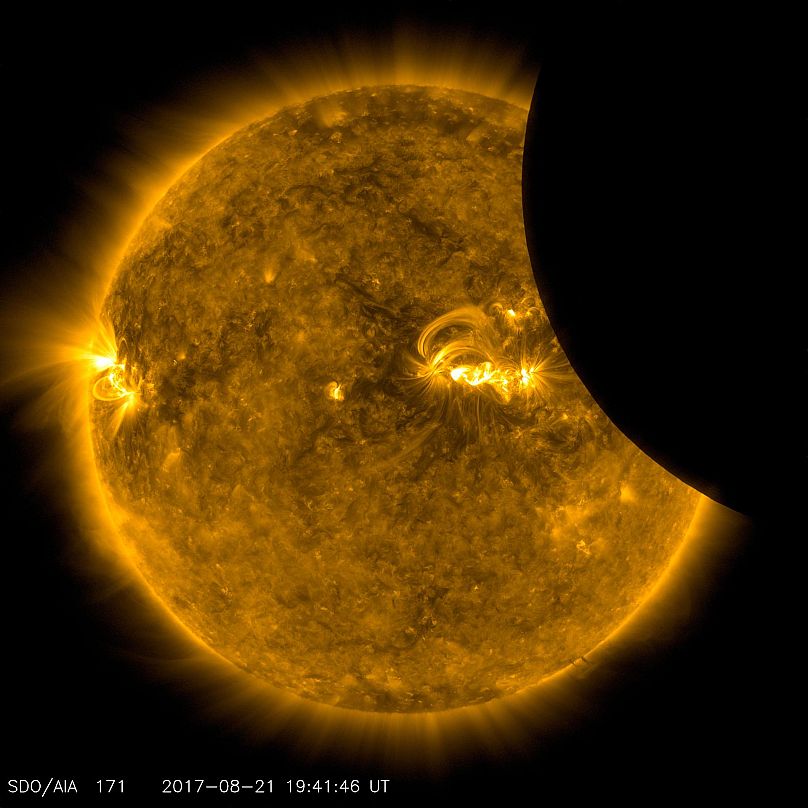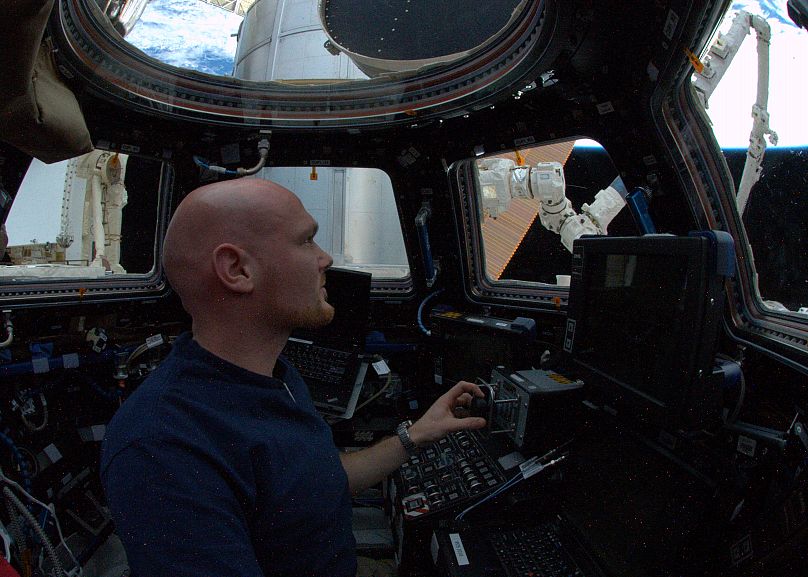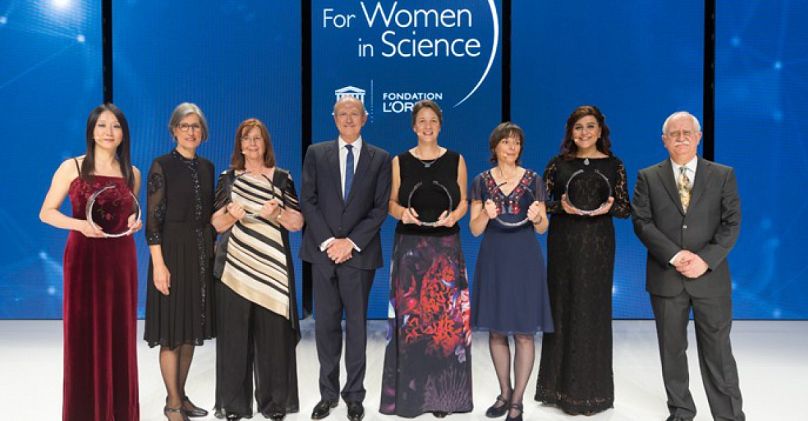Euronews' Space and Futuris presenters take a look at what's ahead in the next 12 months.
**It's going to be a hectic 2018 in space, science and technology. Our Space and Futuris presenters Jeremy Wilks and Julian Lopez look ahead to what we can expect in the next 12 months. **
It could be a rough ride ahead, as scientists are predicting that 2018 could see five more major earthquakes than normal. Researchers at the University of Colorado and University of Montana have a hunch that the Earth's minuscule but regular 5-yearly slowdown in rotation speed is correlated to increased earthquake activity. So, 2018 is the fifth year in this cycle, and if the quakes happen, that theory could start to be backed up with evidence.
While Earth's inner workings remain tricky to predict, what we can tell you is that there'll be plenty to learn here on Earth's surface, or at least near it. At CERN, physicists hunting for new particles that will speed up their research efforts before the Large Hadron Collider, the world's largest particle collider, stops for some 27 months at the end of 2018 for upgrading. Meanwhile the new kid on the block, the European XFEL in Schenefeld, Germany, will have its first full year of operation, allowing scientists to use intense X-Ray flashes to, for instance, map atomic details of viruses or film complex chemical reactions.
What's new in space in 2018
It's a busy year ahead up in space. We can expect three full lunar eclipses, the first on 31st January, and two partial solar eclipses. Then, mankind will be busy exploring beyond our planet. Here's a rundown of the key events, starting from the sun and working outwards. In July 2018 the Parker Solar Probe is due to launch, a spacecraft that NASA is neatly promoting as the 'first mission to touch the Sun'. It will fly to about 5 million kilometres from the photosphere, and give valuable insights into space weather.
ESA's BepiColombo spacecraft will set off in late 2018 for its 7-year journey to Mercury, the first European mission to the innermost planet.
You can expect plenty of new satellites around Earth. One of the most cutting edge is Aeolus, the first-ever satellite to measure wind from space, offering a unique viewpoint that should improve medium-term weather forecasts. Meanwhile the European Commission's Copernicus Earth observation fleet will be completed with the launch of Sentinel-3b, and the Galileo navigation system will launch four new satellites, making its system 100% fully complete, too.
Alex Gerst, Germany's ESA astronaut, will fulfill the dream of becoming commander of the International Space Station when he blasts off for his second mission in June.
Further along the solar system, Mars will see another man-made visitor in the form of NASA's InSight lander, which will study the seismology, geodesy and deep interior of planet Mars—not the most headline-grabbing science perhaps, but the kind of information you really need to know if you want to send humans there to live.
Further out in our galaxy, we can expect a data release from ESA's star-gazing GAIA mission, which is mapping the Milky Way. Then we should also see an explosion in exoplanet science, as NASA's TESS telescope and ESA's CHEOPS mission are both set for launch. TESS will search for new exoplanets around bright nearby stars, while CHEOPS will look for other planets around stars that are already known to host planets. Expect lots of discoveries in this area in 2018.
Save the date
For those, like us, eager to learn more, we can recommend heading off to some of the 1,300 big science events worldwide in 2018—these are good places to learn about the latest discoveries and developments in hundreds of topics, from analytical light microscopy to algorithms, molecular medicine, nanotechnology or food engineering; from the awakening science of consciousness to creepy forensic science or cool Arctic studies. If we were to choose just one, we'd head to Austin, Texas, from February 15-19 for the Annual meeting of the American Association for the Advancement of Science, with hundreds of fascinating presentations from leading researchers in very different fields, this year all focusing on the theme of "Discovery to Application". Plus, in Austin, there's always a good music gig to go to in the evening.
Back in Europe, and 'la ville rose', Toulouse, is in the pink throughout 2018 as it celebrates its status as European City of Science. Already a great destination for the curious mind, thanks to places like La Cité des Etoiles, it has a myriad of activities planned for the year.
In the UK we'd recommend British Science Week, a 10-day celebration of science and technology engineering held in March, or the Big Science-Business Forum, a crucial meeting point.
Women in Science will have their recognition in Paris in March, when five female scientists from South Africa, China, Great Britain, Argentina and Canada will receive their Unesco-L´Oreal Foundation Award for their outstanding contribution to research around the world.
Stay also tuned in 2018 for the usual avalanche of international days on different scientific topics. There will be plenty to choose: International Days of Cancer (Feb. 4), Tuberculosis (March 24), Parkinson's (April 11), Oceans (June 8), Food (Oct. 16), Diabetes (Nov. 14) or AIDS (Dec.1), to cite just a few. Big research institutes and companies usually use these days international days to announce their latest discoveries in those particular domains.
To close the year, science fans should head to Vienna, Austria, to have a look at the latest innovations in robotics, information platforms and future and emerging technologies. Some of the most exciting European research projects will highlight their achievements at ICT 2018 in the Austrian capital.














